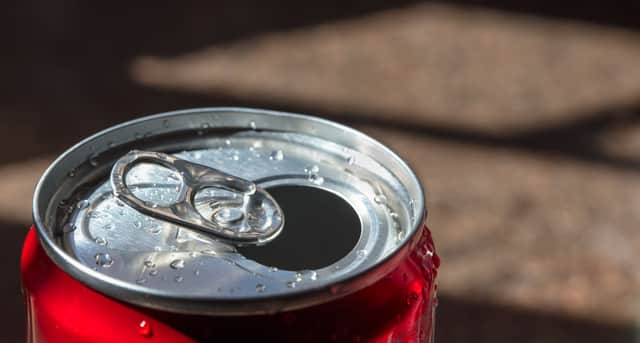Soda: Fizzy drinks increase risks of liver cancer in women, study shows
and live on Freeview channel 276
Just one can of fizzy pop a day significantly increases the risk of both liver cancer and disease in women, a new study has found.
Researchers who observed a group of nearly 100,000 American women showed that those who drank sugar-sweetened drinks every day were much more likely to develop liver cancer or die from chronic liver disease.
Advertisement
Hide AdAdvertisement
Hide AdBut the same study also found that daily consumption of artificially-flavoured drinks did not lead to a similar increase in the risk of liver cancer.


The research, published in the medical journal Jama Network Open, was based on data collected on post-menopausal American women over an average period of more than 20 years.
Chronic liver disease is a major cause of death across the globe and the annual incidence of liver cancer in the US has more than tripled in the past three decades from three people per 100,000 in 1985 to 9.4 people per 100,000 in 2015.
Known risk factors for liver cancer include chronic hepatitis, metabolic disorders such as diabetes and obesity, excessive alcohol consumption and even foods containing 'aflatoxin' found in nuts and corn. However, two fifths (40 per cent) of people with liver cancer do not have any of these risk factors.
Advertisement
Hide AdAdvertisement
Hide AdParticipants were asked to report their usual intake of sugary drinks, regular soft drinks - excluding diet drinks - or fruit drinks, from never up to six or more drinks per day, as well as the serving size consumed.
Around 6.8 per cent (6,692) of the participants reported consuming one or more servings of sugar-sweetened drinks each day, whilst 13.1 per cent (8,506) drank one or more artificially-flavoured drinks every day.
Those who consumed more sugary drinks tended to be younger and less physically active. The research team found that, over an average of 20.9 years of follow-ups, 207 new cases of liver cancer and 148 chronic liver deaths were found in the participants.
Concluding their study, the authors - from multiple universities and medical schools across the US - noted the higher rate of liver cancer and death from chronic liver disease, adding that future research was necessary to further evaluate these links.
Advertisement
Hide AdAdvertisement
Hide AdThey said: "Results reported in this study demonstrated a statistically significant association of greater sugar-sweetened beverage intake and increased risk of liver cancer and chronic liver disease mortality.
"There were no statistically significant associations of artificially sweetened beverage intake with liver cancer or chronic liver disease mortality. To our knowledge, only two prior studies evaluated the association between sugar-sweetened beverages and liver cancer.
"Chronic liver disease was the fourth leading cause of death for women aged 45 to 54 years and the fifth leading cause of death for men aged 45 to 64 years in 2019 in the US. However, evidence for the associations between diet and chronic liver disease mortality is limited.
"To our knowledge, this is the first study to report a positive association between sugar-sweetened beverage intake and chronic liver disease mortality."
Advertisement
Hide AdAdvertisement
Hide AdThe authors added that, though their study had been unable to identify the biological pathways by which sugar-sweetened drinks consumption was associated with liver disease, some 'potential pathways' included: obesity; dramatic increases in blood glucose; liver fat accumulation; adverse changes in the gut microbiome; carcinoma-related metabolites including taurine and phenylalanine and chemicals contained in sugary drinks like caramel colour and citric acid.
"This study had several strengths including its large and geographically dispersed cohort and the 20.9-year length of follow-up," the authors added.
"In postmenopausal women, compared with consuming three or fewer servings of sugar-sweetened beverages per month, people who consumed one or more sugar-sweetened beverages per day had higher rates of liver cancer and higher rates of death due to chronic liver disease."
Comment Guidelines
National World encourages reader discussion on our stories. User feedback, insights and back-and-forth exchanges add a rich layer of context to reporting. Please review our Community Guidelines before commenting.
